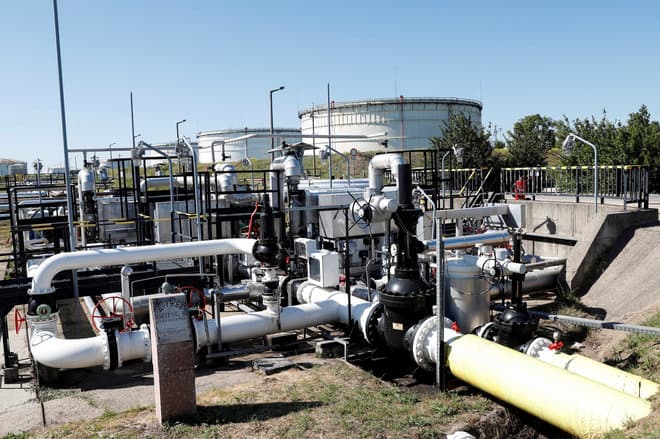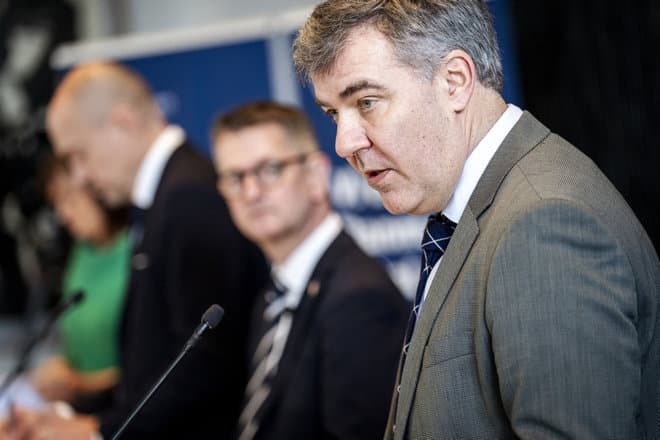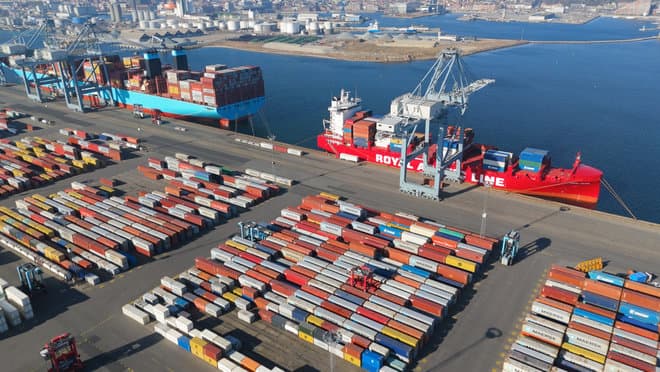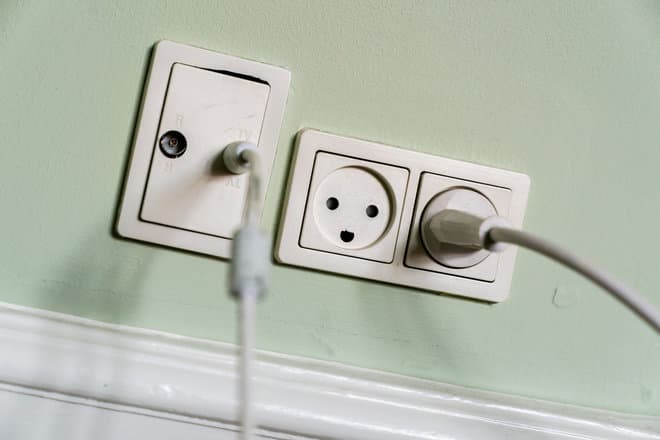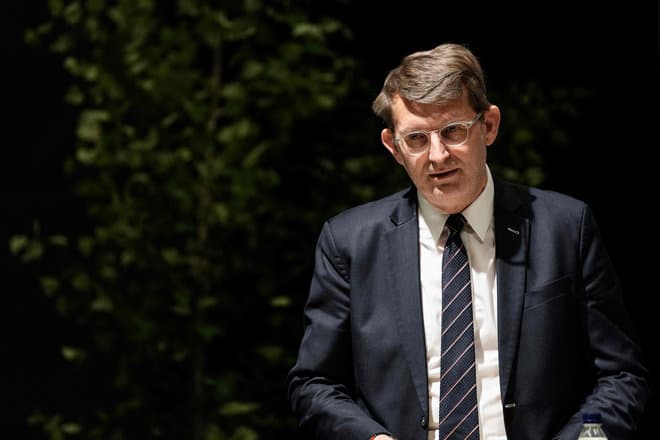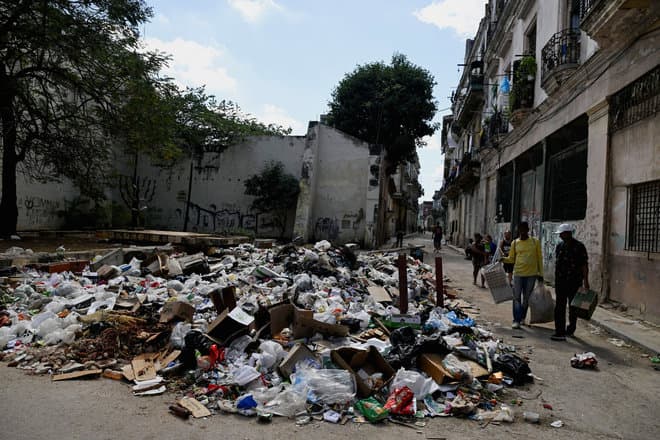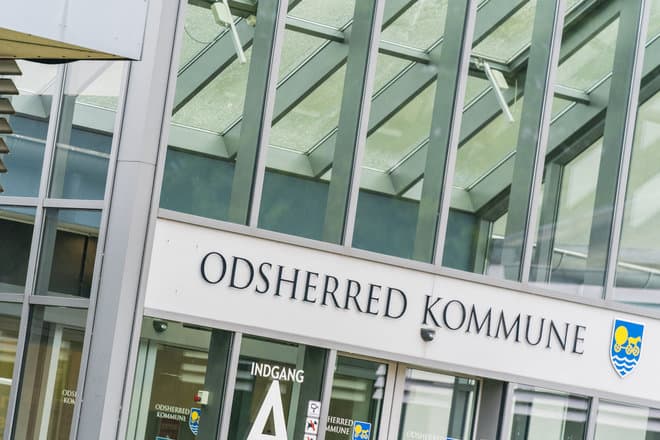
The government is changing course and is ready to provide state support for offshore wind, after Denmark's largest offshore wind turbine tender to date ended in collapse before Christmas. A model with state support must now be prepared for new tenders of 2-3 GW of offshore wind, and at the same time a large tender in progress in inland Danish waters is cancelled. In addition, the Bornholm Energy Island is being put on hold.
- We need to change our tune. We are ready to do what is necessary, says Minister of Climate, Energy and Utilities Lars Aagaard (M) at a press conference on Friday morning.
- It probably also requires that we provide a greater financial hand to offshore wind. The government will make it clear today that we are willing to look at state aid to the extent necessary.
There has been talk of state aid for a long time, but this is a decisive shift in the government's approach to offshore wind.
- The conditions for offshore wind have developed negatively in the past few years. Therefore, I will not hide the fact that this is a major decision, says the minister.
In recent years, the government has wanted the companies behind the offshore wind farms to pay the state to a greater extent for building and operating the turbines, because wind energy had become a good business. Since then, the market has declined significantly, and the requirement for payment contributed to no companies bidding for the large supply of offshore wind at the end of 2024.
- If wind energy is a Christmas tree, then it was a Christmas tree where all parties to the agreement expected that we could pick banknotes, but now we have to hang some banknotes on the tree, says Lars Aagaard.
Energy Island Bornholm on pause
The government has also informed the parties to the agreement that the necessary framework to launch the next phase of Energy Island Bornholm has not been put in place in time. This is despite the fact that the EU Commission on Thursday allocated 645 million euros for the project, which is planned to establish three gigawatts of offshore wind.
- We are waiting for the outcome of the German election to decide what will happen to energy island Bornholm, says the minister.
According to the minister, the government has not taken a position on how much state aid will be given in connection with the upcoming tenders. Initially, it is about sending the signal that state aid will be involved.
- We will seek political support for this. But I also hope that there is popular support. State aid can only come from one place, and that is from the Danes, says the climate minister.
State aid can come in many forms, the minister explains. He points out that it can, among other things, come in the form of the state helping to take on some of the risk associated with investments in offshore wind.
Support for hydrogen pipes
The government will also allocate an amount of billions, which will provide a solid boost to the development of the Danish hydrogen market. This will, among other things, secure financing for hydrogen infrastructure for Germany. But the focus will initially be on the part of the hydrogen pipeline that runs from Esbjerg to the German border.
This postpones the original plan to build a 360 km long pipeline. Instead, the government will "go to great lengths to make it possible to commission the first phase of the hydrogen infrastructure" from Esbjerg to Vejen and from there to the border with Germany as early as 2030.
- We start with what is called the number 7, that is, from the border to Esbjerg, he says
Specifically, the support will consist of a loan to Energinet of 7.5 billion. DKK. That money must be paid back. And then it comes as a 'potential' operating subsidy of eight billion. DKK over 30 years.
- The prerequisite is that we can connect Danish production to German demand. This requires a hydrogen pipeline, and we, as a government, are ready to help with this, he says.
A full Jutland hydrogen backbone includes, in addition to Syvtallet, sections further north and a section east to Fredericia. However, focusing on Syvtallet does not mean that the government has abandoned the ambition that a full Jutland hydrogen backbone can be established. The Ministry of Climate, Energy and Utilities is now setting up a task force that will look at the next separate phases as soon as possible.
Lars Aagaard presented the initiatives to the conciliation group on Friday before the press conference.
amp/ritzau/
The article is continuously updated
Text, graphics, images, sound, and other content on this website are protected under copyright law. DK Medier reserves all rights to the content, including the right to exploit the content for the purpose of text and data mining, cf. Section 11b of the Copyright Act and Article 4 of the DSM Directive.
Customers with IP agreements/major customer agreements may only share Danish Offshore Industry articles internally for the purpose of handling specific cases. Sharing in connection with specific cases refers to journaling, archiving, or similar uses.
Customers with a personal subscription/login may not share Danish Offshore Industry articles with individuals who do not themselves have a personal subscription to Danish Offshore Industry.
Any deviation from the above requires written consent from DK Medier.







